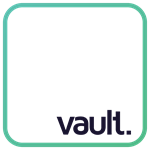TMCnet News
Enterprises Still Unsure What a "Speak Up" Culture Really Looks Like, According to Research from Vault PlatformLONDON, Nov. 26, 2019 (GLOBE NEWSWIRE) -- More than two years after the #MeToo and #TimesUp movements put a global focus on workplace harassment, almost a third of enterprise employers still don’t believe they have a culture where it’s safe for their employees to speak up. A new study from Vault Platform, the next-generation solution for workplace misconduct reporting and resolution, spotlights a disconnect between the demands of the workforce and promises of leadership at the management layer tasked with delivering change. The attitude to misconduct reporting takes many forms in organizations, but all face the same psychological challenges. Employees are generally discouraged from speaking up because they fear retaliation or do not believe action will be taken. But despite high profile efforts to address organizational culture, a workplace environment that encourages speaking up is still far from commonplace. The Vault Platform study, which questioned the custodians of organizational culture – leaders and professionals in the HR, D&I, compliance and legal functions – found that nearly 14 percent of respondents don’t know if they have a speak-up culture and almost 18 percent admitted that the vision and the reality of their culture are often different. The pervasive theme across the findings, which received responses from 1,000 individuals, is that stakeholders in a position most able to make changes within an organization are either still blind to the level of misconduct taking place, or acknowledge that a considerable amount of lip service is being paid to addressing it. After all, these stakeholders are the ones most likely to be tasked with upholding the company values or writing the employee handbook. Tellingly, 19 percent of respondents believe at least 75 percent of misconduct in their organization is reported, and around 12 percent believe that 10 percent is. The suggestion here is that almost a fifth of stakeholders surveyed believe they either don’t have any misconduct in their organization or a minimal amount that is being captured by existing processes. These findings are in direct contrast to far-reaching employee survey data such as that from the U.S. Equal Employment Opportunity Commission (EEOC), which reveals that employees report less than 25 percent of harassment and misconduct they witness or experience. While a total of 87 percent of respondents said their organization has an official misconduct reporting system in place, the leading solitary solutions are hotlines for anonymous and non-anonymous reporting. Other research reveals that hotlines are the least used of all reporting solutions and cannot be relied upon for an accurate measure of misconduct reporting. Another positive finding is that, when asked what they think is the most effective mechanism for tackling misconduct within an organization, the overwhelming majority of respondents said, ‘empowering people to speak up’ (68 percent). However, one respondent revealed that incident reporters were expected to take up their complaint with the perpetrator directly, before engaging their line manager and then HR. Although this could be perceived as “speaking up,” it doesn’t suggest the individual would get the level of support that might qualify as being empowered to speak up. Vault Platform CEO and co-founder Neta Meidav commented, “Anecdotally, we’ve discovered that if your organization has zero reports of misconduct, it probably doesn’t mean your company is squeaky clean, unfortunately. It most likely means you just don’t know what’s going on. These survey findings demonstrate that while we’ve come a long way, work is still to be done to create workplaces where people feel safe to speak up about misconduct and harassment.” The primary research was conducted during October 2019, using an online survey to question 1,000 HR, legal and compliance professionals working with enterprises in the U.S. and U.K. The majority (38 percent) were HR Director or VP level and above, 7 percent were diversity and inclusion director level and above and a similar amount was legal counsel director level and above. The rest of the respondents were a mixture of legal, compliance, risk and employee experience professionals below the director level. Overall, the study sought to reflect the demographic most empowered to effect change within an organization when it comes to culture. The full findings are available for download. Please access the study here. About Vault Platform Vault Platform is advised by Harvard Business School workplace culture and trust expert, Professor Frances Frei and industry analyst, Josh Bersin. The company is backed by Kindred Capital, Angular Ventures, System.One, Jane VC and private investors. To learn more, please visit www.vaultplatform.com. Media Contacts: Kate Achille The Devon Group 732-706-0123 ext. 703 [email protected] |

